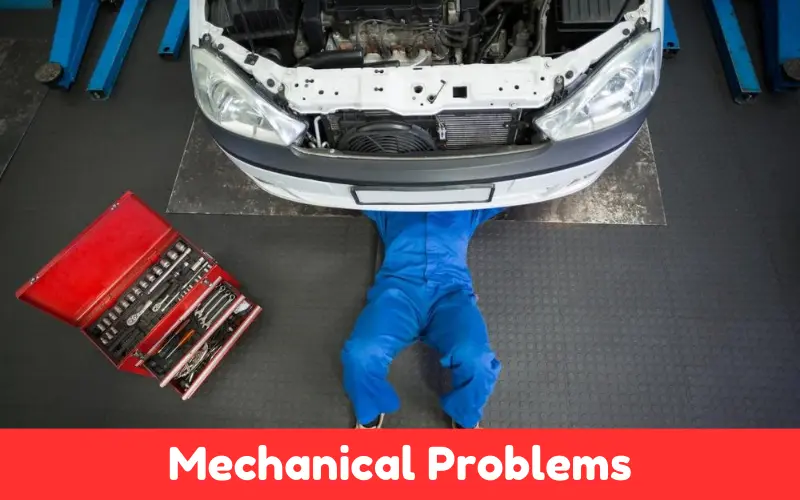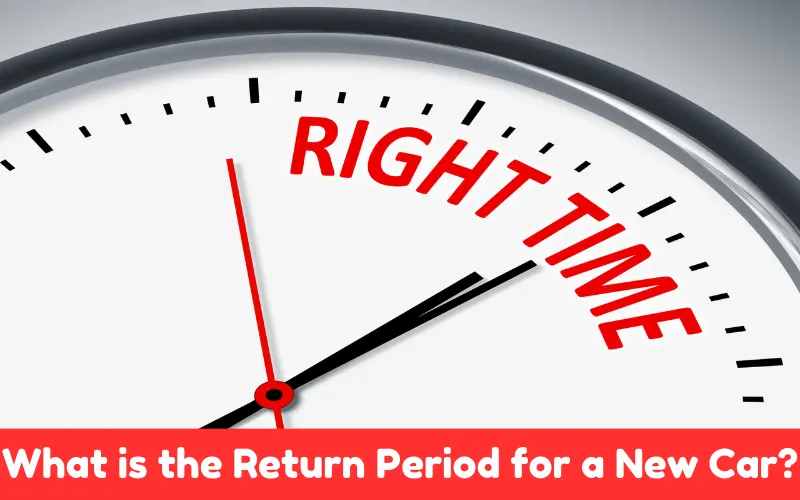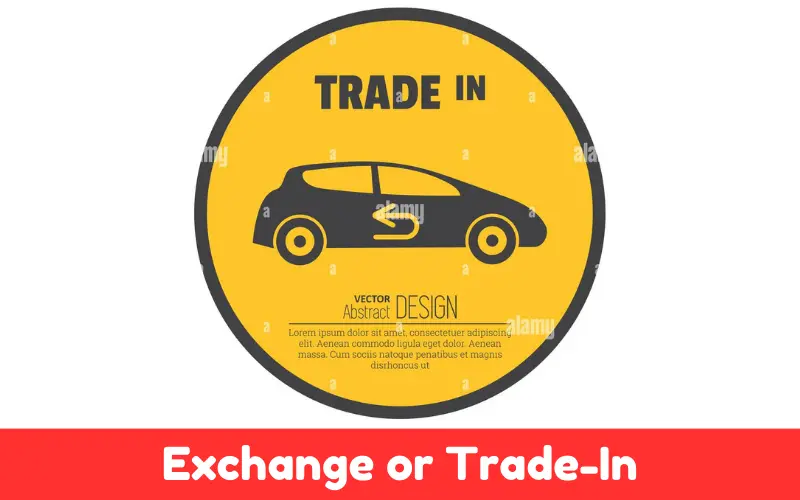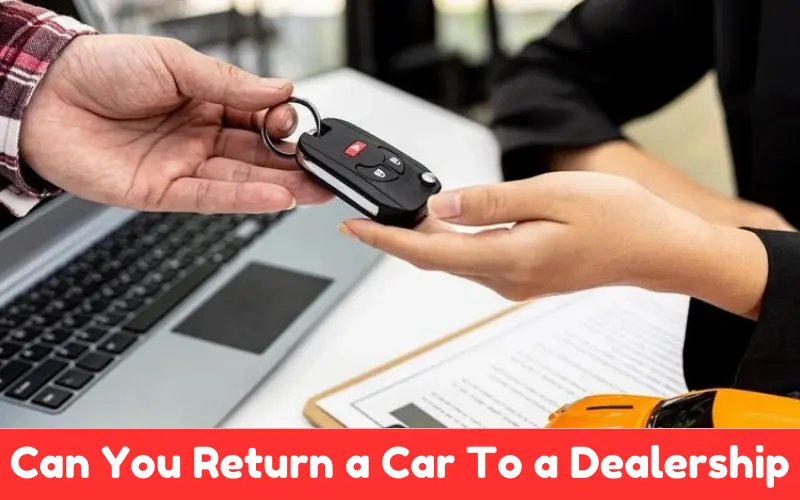Buying a car is a big decision, but sometimes things happen after driving off the lot. You might regret the car you purchased, or maybe you never should have bought the car in the first place.
Perhaps you took a bust on your strut decisions or didn’t check your brakes thoroughly enough. The question on the minds of car buyers everywhere is: Can you return a car to a dealership? You could have contact at J.C. Lewis Ford’s Cars for Sale for details information.
It’s a tricky question to answer outright. A few caveats, such as the dealership’s policies, state laws, or language in your purchase agreement, can muddy the waters.
In this blog post, we’ll fish out the main points of consideration when returning a car to a dealership.
Article Summary
Can You Return a Car To a Dealership
If you buy a new or used car and discover buyer’s remorse, you generally can’t take it back. Your much reviled dealer in cars and trucks is unlikely to rescind your sale contract and refund your money or exchange your vehicle after the fact.
There are exceptions to this rule. Some dealerships might allow you to return the car to them under certain circumstances.
For example, if the car you bought had a major mechanical issue, the dealership might legally be obligated to take the car back.
Understanding Return Policies
While some dealerships have return policies similar to retail stores, most do not. Some dealerships offer a ‘money back guarantee’ or a return period, often within 30 days.
This is more common with a used car but varies widely among lots. When shopping, always ask for the return policy in writing and obtain their agreement before you purchase the vehicle.
State Laws
Some states have laws regarding how long the consumer can keep a car. These laws can be associated with ‘lemon laws’ or broader regulations for consumer protection. Learn about your rights under state law.
Reasons for Returning a Car
Buyer’s remorse: if you feel that you have made a mistake or the car’s features do not fit your needs as you thought they would, you might ask for its return.
Although pure emotion likely provides no cause for a return, a frank conversation with the dealership may provide relief.
1. Mechanical Problems
If you encounter significant mechanical problems shortly after buying the car, you might have the right to reject it, especially if an express or lemon law warranty protects it. Be sure to document all your issues and notify the dealership immediately.

2. Financial Need
If your finances change so you can no longer afford the car, you could seek to return the vehicle to mitigate your financial situation. But, usually, that requires you to negotiate with the dealership.
3. The Return Process
If you believe you have valid reasons to return your vehicle, follow these steps:
Look Over Your Agreement: Check your sales agreement and any warranty paperwork for return specifics.
Contact the Dealership: Contact the dealer where you purchased the vehicle and inform them of the situation. Ask for the possibility of a return.
Gather Documents: Collect paperwork such as your sales contract, your warranty, and records of mechanical problems.
Be open to negotiation: A dealership (especially a used car) might not be willing to return your car. Instead, they might offer you an exchange or trade-in. Be open to what will best suit your circumstances.
What is the Return Period for a New Car?
A new car purchased at a particular dealership can be returned as per the return period, assuming that the dealership and state laws agree.
Unlike in retail stores, where there is usually a short grace period to return the product to a store and get a refund, most dealers do not provide such a policy.

There might be a rare case where a money back guarantee or some sort of return window exists in a dealership within a limited period, say 3 to 7 days.
You also want to review the purchase agreement terms and any goodwill offers you may have been offered.
In some states, lemon laws may permit you to return the vehicle if it has significant defects, but those laws vary and may have strict requirements as to their applicability.
Ask any dealership about its return policy before you part with your money. Familiarise yourself with your state’s consumer protection laws concerning car purchases.
Potential Outcomes
Return Accepted: Yes, the dealership accepted your request to return the vehicle, which they might walk you through the process of achieving, including having your vehicle inspected and your payments settled.
Exchange or Trade-In: Instead of getting a refund, the dealer might offer to help you find a more suitable vehicle that would better fit your needs.

Return Denied: However, if the dealership says ‘return denied,’ you need to learn more about your legal rights and possibly see a consumer protection agency.
FAQs on Can You Return a Car To a Dealership
Can I Return a Car If I Change My Mind?
In contrast, unlike those found in retail stores, few dealerships have a straightforward return policy. They might offer a return period within a brief timeframe from the date of purchase or sometimes even a money back guarantee, usually only with a used car. Check with the dealership for their specific policy.
What If the Car Has Mechanical Issues?
You probably have a right to return the car if you have major mechanical problems shortly after buying it. If the car is still under warranty or protected by a lemon law, for example, or if there was some clear, repeated misrepresentation in the sales pitch. Just make sure to record your complaints and contact the dealership quickly.
Are There State Laws Regarding Car Returns?
For example, some states allow you to return a car within a few weeks of purchase, whereas others don’t. Therefore, you should find out whether your state gives you the right to make returns and whether it specifically addresses what’s known as lemon laws.
What is the Process for Returning a Car?
In order to return a car, re-read your purchase agreement, call the dealership to explain what happened, gather any documentation necessary to prove your case, and be ready to haggle. The dealer may offer to exchange the car or trade it in.
What If the Dealership Refuses My Return Request?
If the dealership turns down your return, you may need to hire an attorney and pursue a lawsuit or file a complaint with a consumer protection agency and start over. Know your rights and the laws in your area to help determine your next move.
Final Thoughts
While returning a car to a dealership is rarely a cakewalk, being a more informed customer means you can review your purchase agreement, express your needs to the dealership, and use the laws in your state to protect yourself if it ever comes to that.
If you are faced with a situation demanding a return, seize the initiative and work with the dealership and the manufacturer to achieve a resolution that works for you and them. Luckily, that new car will deliver many years (and miles!) of happy motoring.

